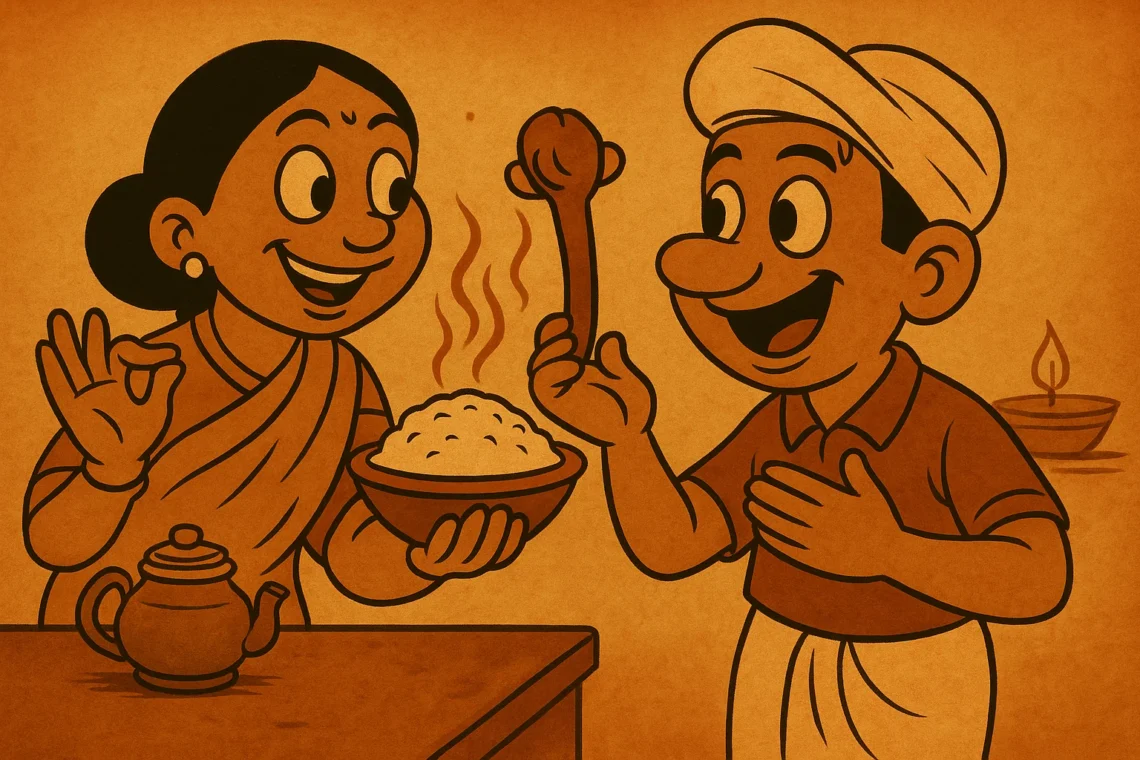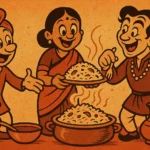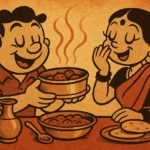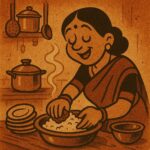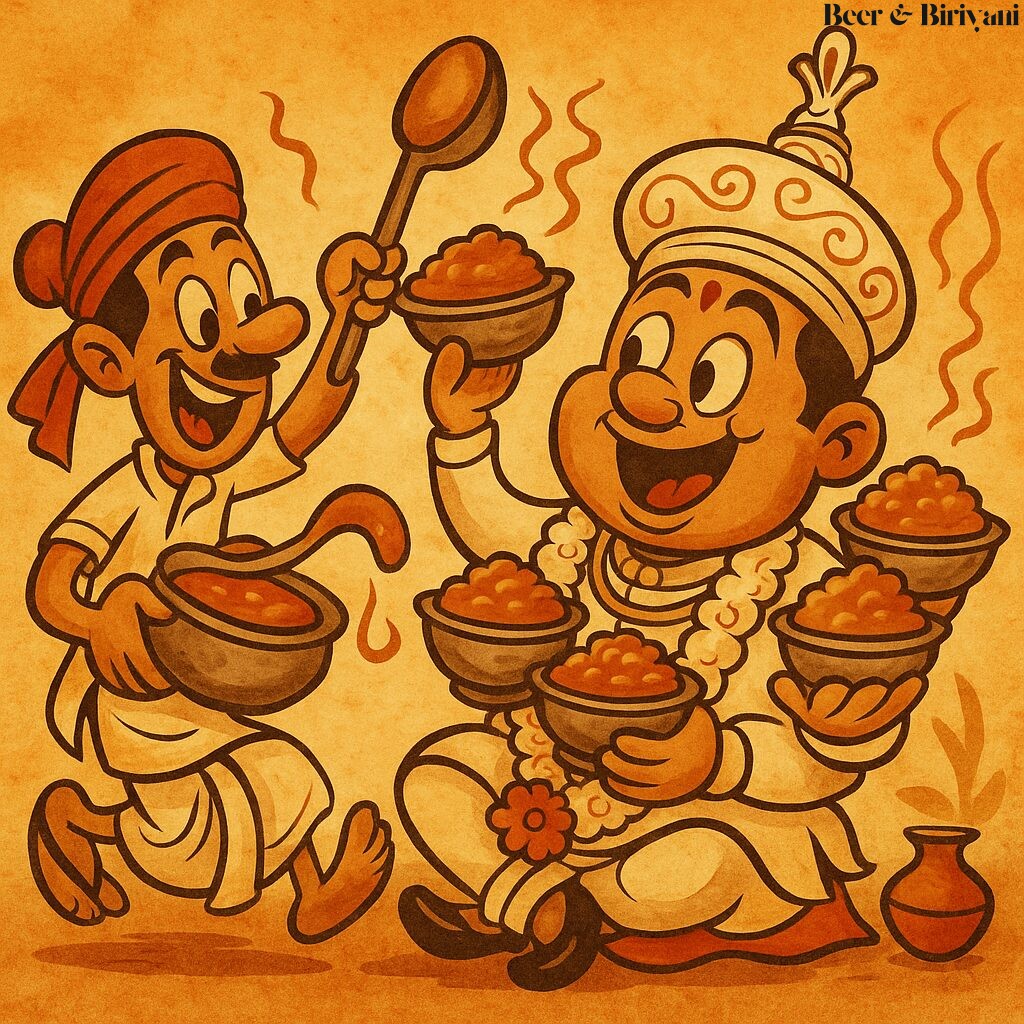If you were to take a peek into any Indian kitchen, there’s one spice that might be easy to overlook, yet it quietly holds its own in a myriad of dishes, remedies, and cultural rituals. That spice is clove — a tiny little bud that punches far above its weight. When you think of cloves, you might think of a warm, spicy-sweet scent that fills the air, or the sharp, almost bitter taste that makes its presence known in everything from biryani to chai. But what about the fact that cloves are also the go-to remedy for toothaches and have been present at many a funeral? This unassuming little spice has a knack for being in the right place at the right time, making it one of the most versatile (and maybe overachieving) spices in the Indian culinary repertoire. Let’s dive in and uncover the story of clove, and why it deserves a more prominent place in the spotlight.
A Spice With a Long History
Clove, or “laung” as we call it in Hindi, has been around for centuries, both in the kitchen and in traditional medicine. Native to the Maluku Islands of Indonesia, clove made its way across Asia, the Middle East, and Europe, eventually landing in India around the 10th century. While its origins are far from Indian, it has since become a cornerstone of Indian cooking. You’ll find it in curries, rice dishes, meat stews, and sweets, where its robust, aromatic flavor adds depth and complexity to any dish.
What I’ve always found fascinating is the way this small spice manages to transform a simple dish into something rich with flavor. It’s often paired with other spices like cinnamon, cardamom, and cumin, but even in small amounts, its taste doesn’t fade into the background. It’s like the spice version of that one friend who, despite not speaking much, somehow manages to make every conversation better and more interesting. In fact, in the world of Indian cooking, clove is one of the few spices that can hold its own in both savory and sweet dishes.
In the Kitchen: Clove’s Culinary Prowess
My first memory of clove was probably during the many biryanis my family cooked over the years. As a kid, I never understood the importance of these tiny buds in the grand scheme of things. To me, they were just there, floating in the fragrant rice, a little too sharp to bite into, but always somehow enhancing the flavors around them. My mom would often toss a few into the pot while making a masala, and before I knew it, the entire kitchen would be filled with this warm, comforting scent of spices melding together. It was the clove that had that magical touch, adding a note of depth to the dish that lingered even after the meal was over.
Clove shines in dishes like biryani, where it complements the richness of the meat and the basmati rice with its pungent, slightly bitter flavor. It’s also a secret ingredient in pulao, korma, and the occasional dal, where it rounds out the taste profile with its distinct flavor. If you’ve ever made chai, clove makes an appearance there too, infusing the tea with a sense of warmth and spice that feels just right in every sip. It’s a versatile ingredient that never overpowers, but it’s definitely always there, doing its job flawlessly.
Clove Beyond the Kitchen: A Natural Healer
But clove isn’t just about food. This tiny spice has medicinal roots that stretch far beyond the kitchen. Growing up, I remember my grandmother always reaching for a clove when we complained of toothaches. A simple clove placed on the painful tooth, and within minutes, the sharp pain would subside. There’s science behind this, of course. Clove contains eugenol, a compound that has strong analgesic properties. It’s no wonder it’s been used as a remedy for toothaches for centuries.
Clove oil, extracted from the buds, is also known for its antiseptic and antibacterial properties. Back in India, it’s common to see people using it in small amounts to treat colds, coughs, and even as a massage oil for muscle pain. It’s funny how this little spice, which may seem insignificant on its own, carries with it such a long legacy of healing properties. I’ve even caught myself reaching for a bottle of clove oil when I have a headache. Its soothing qualities have a way of making you feel taken care of, even when life is busy.
A Spice With Spiritual Significance
Clove has also earned its place in Indian culture beyond the kitchen and medicine cabinet. It’s part of many religious rituals, from pujas to funerals. It’s often placed on the altar as an offering, believed to bring prosperity and drive away negative energy. In some cultures, clove is considered a symbol of protection. In fact, in some Hindu rituals, it’s common to burn clove as incense during prayers, as its smoke is said to purify the space and encourage spiritual harmony.
And then there are the funerals. Cloves are often burned to ward off evil spirits and to create a peaceful atmosphere. Whether it’s in a wedding or a funeral, clove has an almost magical presence. Its warm, spicy scent tends to bring a sense of calm and reverence to the occasion, reminding us of life’s fleeting nature and the sacredness of the moment. It’s not the first thing you would think of when talking about a spice, but it’s the kind of ingredient that quietly shapes the mood of a room.
Clove’s Unassuming, Yet Powerful Legacy
What’s so remarkable about clove is that despite its small size, it manages to find a way into so many aspects of life. From being a key player in a flavorful biryani to offering relief for a toothache, it’s a spice that proves time and time again that good things come in small packages. As I sit here in Austin, far from my home in Mumbai, I still keep a jar of cloves in my kitchen. Every time I use it, I’m reminded of those warm, comforting meals shared with family, the tea I’ve sipped during lazy afternoons, and the healing hands of my grandmother who always knew exactly what to do when something was wrong. Clove might be small, but it carries with it a legacy of warmth, comfort, and an ability to show up exactly when needed.
So the next time you reach for a clove, whether it’s for a meal, a cup of tea, or just to make the world smell a little bit better, take a moment to appreciate its quiet, unassuming presence. After all, it’s a spice that truly does it all, without ever asking for the spotlight.
Born in Mumbai, now stir-frying feelings in Texas. Writes about food, memory, and the messy magic in between — mostly to stay hungry, sometimes just to stay sane.

